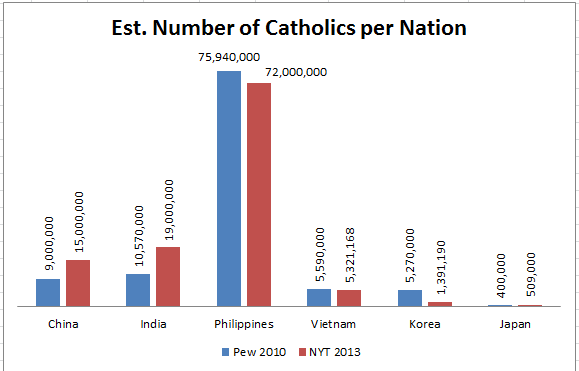'Zainichi' is a word that refers to Koreans in Japan. In Japanese society, even if they are naturalized and acquire Japanese nationality, they continue to be called 'Zainichi' and treated as foreigners.
Japanese immigrants in the United States and South America are called Japanese Americans or Japanese-Brazilians. Then why doesn't Japan, likewise, call Koreans who have moved to Japan and acquired citizenship "Korean-Japanese"? You don't want to call them Japanese, there is a certain social distance you want to keep, this is understandable to a point but you go beyond that. Using the word 'Zainichi' casually is horrible discrimination.
Whenever the writer has a chance he wants the Christians in the community to use the word Korean Japanese or Philippine Japanese when addressing the other national groups but without results. Is it that the time is not right or that he doesn't understand the situation?
The Japanese Church will celebrate the feast day of the 26 martyrs of Nagasaki on February 6th. They were a group of Catholics who were executed by crucifixion on February 5, 1597, at Nagasaki. Their martyrdom is especially significant in the history of the Catholic Church in Japan. The persecution against Catholics continued. Another day on September 10, they remember those who were martyred in other parts of Japan from 1617 to 1632. Their nationalities include seven countries, besides the Japanese and Koreans.
Japan is a country that cannot be reached without crossing the sea. Nevertheless, this diversity of nationalities of the martyrs is intertwined with the circumstances of the times. Japan opened its ports to these countries and traded with them but forbade Catholicism. They came to preach the Gospel and were martyred.
This shows that the 'Japanese Early Church' was a church formed with a multinational culture. No nationality is involved in the construction of the kingdom of God. This grace continues even after 400 years.
The parish in which the writer has pastoral duties is one of the largest in Japan. The church near Shinjuku in Tokyo attracts more than 5,000 believers at Sunday Mass. Japanese language (5 times, 2296), English (1120), Spanish (173). Mass, biweekly or once a month Vietnamese (1092), Indonesian (80), Polish (78), and Portuguese (61).
On October 6, the total number of pilgrims attending Sunday was 4740. According to statistics, more than half are foreigners. Currently, the Catholic Church of Japan is overwhelmingly foreign more so than any other denomination. As a result, the Tokyo Archdiocese has experienced the cultural differences and unity of heart, and since last year, has established and practiced "consensus within diversity" as a pastoral guideline.
The Japanese church is now trying to respond to other ethnic and multicultural realities. When more than half of the church's believers are foreigners, the Japanese do not feel the church is being taken away from them, but a chance to build the current Japanese church together.
On the lawns of the church, children from different countries, different hair, skin colors, and languages are seen speaking in Japanese and playing together.
One day, an elementary school student asked his father what nationality was the child with whom he was playing. The father replied: "Yes, his name is Thomas." Before distinguishing, the father, a mature Christian, was teaching his son that the person comes first. The Church of Japan as well as the Jesuit parish in one sense, is already living in the kingdom of God. If they are conscious of this fact and learn to pass it on to the next generation, the Japanese church can be said to be heading in the right direction.
Thirty years ago they realized that they would lack vocations so they divided the dioceses into districts. It was late but the Order moved ten years ago. The biggest difficulty in the process of change was the uncooperative attitude of the older members. They thought that the work they had carefully prepared during the last 60 years would all end. At this time, the leadership of the Diocesan and Provincial Directors was important. You should be able to celebrate failures.
From November 23, Pope Francis comes to Japan from Thailand. Is it a coincidence that both countries have a small number of believers and the church is operating in less than ideal conditions. They are waiting for the warm touch of Pope Francis.

No comments:
Post a Comment